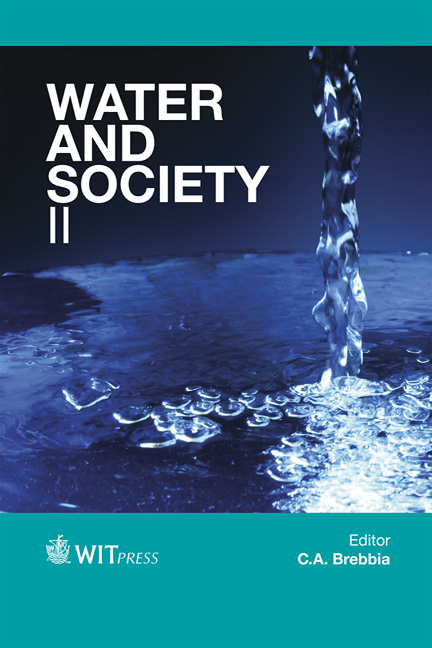Groundwater Management For Sustainable Production Of Drinking Water Quality In Maâmora
Price
Free (open access)
Transaction
Volume
178
Pages
14
Page Range
241 - 254
Published
2013
Size
597 kb
Paper DOI
10.2495/WS130201
Copyright
WIT Press
Author(s)
D. Belghyti1, H. Daifi1, A. Alemad1, K. Elkharrim1, M. Elmarkhi, Y. Souidi, F. Benelharkati, B. Joti, Z. Elmoukrifi, A. Ibeda, Y. Azami-Idrissi, S. Baroud, F. Elkhayyat, O. Elrhaouat, S. Sadeq, Y. Taboz, H. Sbai, R. Naser, H. Chigger & N. Derwich
Abstract
The problem of water pollution affects the whole world including groundwater which is more susceptible to contamination by residues of industry, agriculture and domestic wastewater leading to the emergence of many serious epidemic diseases (cholera, typhoid, amoebiasis,…etc). The purpose of this study is to evaluate the impact of agricultural intensification and discharge of untreated sewage on the physical, chemical and bacteriological water quality of groundwater Maâmora, Kénitra, Morocco. The physicochemical parameters followed are: T°C, pH, EC, NH4 +, NO2 -, NO3 -, Cl-, F-, HCO3 -, SiO2, SO4 2-, Boron, Dry Residue, Turbidity, Total Hardness (TH), Dissolved O2, Oxidisability and total and fecal coliforms of raw water from the boreholes. This study shows that the physicochemical and bacteriological quality of the groundwater which is used as drinking water for the city of Kénitra and adjacent areas is generally good. However, high concentrations of nitrates (NO3, NO2) in
Keywords
drinking water, tablecloth, bacteria, physicochemical, Nitrate, Morocco





